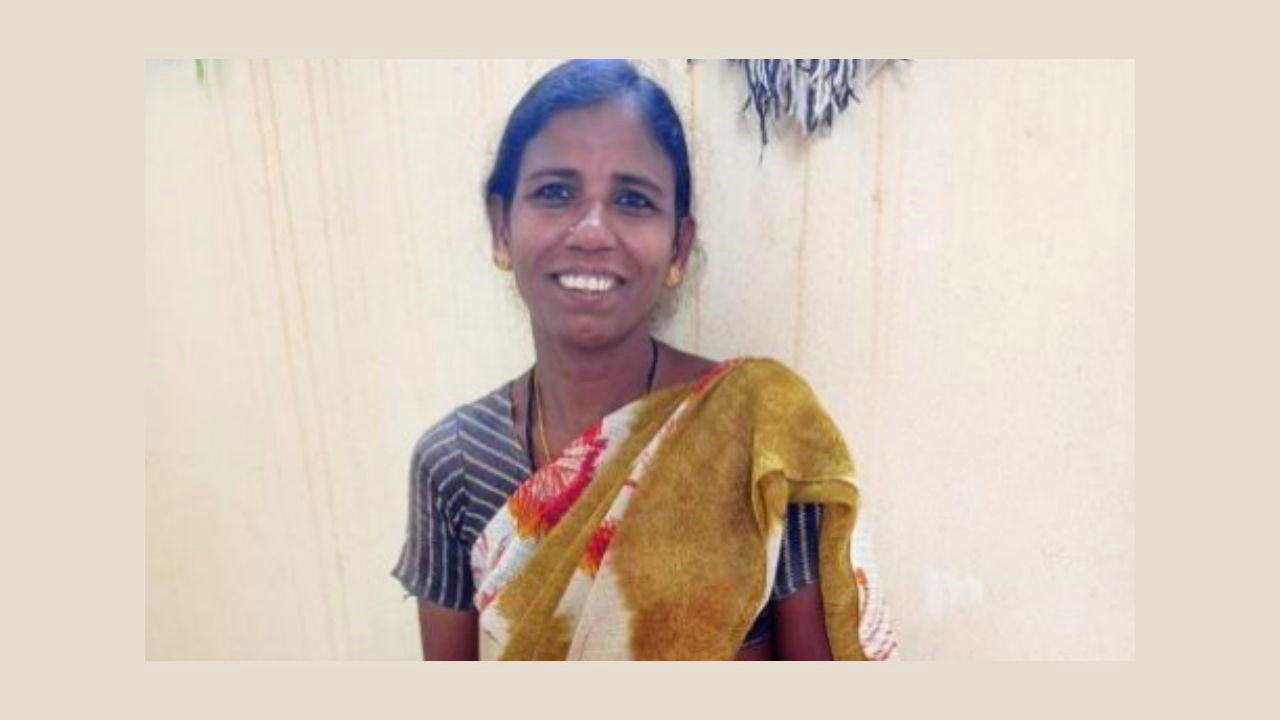
In Ponnapalli ward, Narsapur town, Andhra Pradesh, open defecation once dominated daily life, with slum families lacking basic sanitation. Amid these challenges, Satyanarayanamma, a polio-disabled fisherwoman and mother of two, defied social barriers, leading her community toward a cleaner, healthier future through her resilience and determination.
A Personal Drive for Change
Satyanarayanamma’s journey as a changemaker began with her own battle with polio, which left her differently-abled. Her experience made her acutely aware of the importance of sanitation in preventing illness. She recognized that poor sanitation practices not only endangered her family but the entire community. This personal connection to health and hygiene motivated her to take action.
Satyanarayanamma found her platform for change when she joined the Gender Forum, a local NGO focused on sanitation and hygiene education. Here, she connected with other women equally passionate about improving living conditions in Ponnapalli ward. Together, they worked to raise awareness about crucial issues such as menstrual hygiene, the importance of using toilets, and the benefits of regular handwashing.
Despite her efforts, Satyanarayanamma faced initial resistance from the community. Convincing residents to abandon open defecation and adopt new sanitation practices was no easy feat. Many were reluctant to change deeply ingrained habits. However, Satyanarayanamma’s leadership, combined with the support of the Gender Forum, slowly turned the tide. Their consistent sanitation audits and discussions about faecal sludge management began addressing the community’s concerns, paving the way for transformation.
Achieving Open Defecation Free (ODF) Status
Through relentless efforts, Ponnapalli ward achieved a significant milestone- Open Defecation Free (ODF) status. This accomplishment not only improved the health and hygiene of the local population but also set an example for other wards in Narsapur. Satyanarayanamma’s leadership was instrumental in this achievement, proving that change is possible when driven by the community itself.
Ponnapalli ward’s sanitation success aligned with the broader national efforts of the Swabhav Swachhata Sanskaar Swachhata (4S) campaign, launched to mark the 10th anniversary of the Swachh Bharat Mission. Running from September 17 to October 2, 2024, this campaign continues to highlight India's commitment to cleanliness and sustainable sanitation. Stories like Satyanarayanamma’s represent the spirit of the Swachh Bharat Mission, inspiring communities across the country to take ownership of their health and hygiene.
Impact of the Swachh Bharat Mission
India’s journey toward a cleaner and healthier future is evident in the remarkable achievements of the Swachh Bharat Mission. As of September 2024, over 4,500 cities in India are Open Defecation Free, with many moving beyond basic sanitation to achieve ODF+ and ODF++ status. In rural areas, more than 5.5 lakh villages have been recognized as ODF Plus, showcasing improved sanitation facilities and practices. These milestones reflect not just infrastructure development but a shift in mindsets, one that Satyanarayanamma has helped foster in Ponnapalli ward.
Sustaining the Momentum for Future Generations
As the Swachh Bharat Mission moves into its second decade, the success of grassroots efforts like Satyanarayanamma’s ensures that communities are equipped not just with toilets but with the knowledge and responsibility to maintain sanitation for years to come. Her work serves as a powerful example of how individual determination can spark collective action, creating lasting change.
Satyanarayanamma’s story is a reminder that true change is not just about building infrastructure—it is about reshaping attitudes toward sanitation and hygiene. Her efforts in Ponnapalli ward demonstrate the power of community-driven initiatives in achieving sustainable outcomes. By taking ownership of their health and environment, the residents of Ponnapalli have not only transformed their living conditions but have created a legacy of responsibility that will benefit future generations.
In her journey from a fisherwoman to a community leader, Satyanarayanamma has shown that one person’s determination can lead to an entire community’s success. Her story is a testament to the impact of grassroots leadership in India’s broader mission for cleanliness and public health.
















